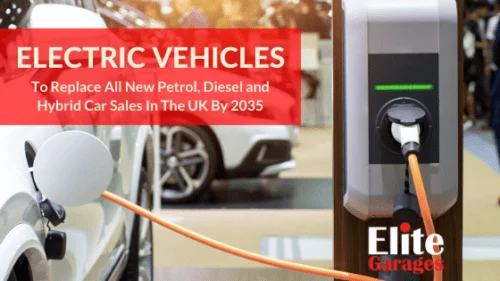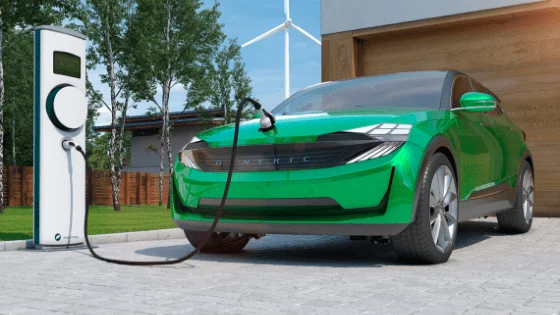
Electric Vehicles To Replace All New Car Sales By 2035
With all eyes on the COP26 United Nations climate summit in November, Boris Johnson, the UK’s Prime Minister announced a ban on the sale of all hybrid, petrol and diesel cars from 2035. They plan to put measures in place to meet the zero carbon emissions through electric vehicles replacing all new car sales in the UK.
Achieving Zero Emissions In The UK By 2035
The Science and Technology Select Committee (STC) re-iterated that there needs to be more urgent action on climate change. In a report published in August 2019, they insisted that 2040 would be too late to achieve a target of zero-emissions by 2050.
In light of the goals set by MPs on the Committee on Climate Change in May 2019, Boris Johnson will announce a plan for achieving zero emissions by bringing forward the ban from 2040 to 2035. This will include banning the sale of new petrol, diesel and hybrid vehicles in the UK.
While the goal is clear and global warming has had a clear global impact, the Committee on Climate Change said that “widespread personal vehicle ownership does not appear to be compatible with significant decarbonisation”.
Ensuring A Zero-Emission Future
Nothing this big can be achieved by one person or overnight and has to be a collective effort. As such, the United Nations climate summit in November will see Boris Johnson outlining the Government’s ambitious new policy. It is likely to feature the expected ban on the sale of new petrol, diesel and hybrid cars. While 2035 is the goal, it could happen even sooner.
Boris Johnson will be joined by the legendary Sir David Attenborough and Italian Prime Minister Giuseppe Conte to join forces in the fight against climate change. Johnson said: “Hosting COP26 is an important opportunity for the UK and nations across the globe to step up. As we set out our plans to hit our ambitious 2050 net-zero target across this year, so we shall urge others to join us in pledging net zero emissions.”
Concerns Over Only Selling Electric Vehicles
With the goalposts being changed, there are several justifiable concerns. First off, there is the issue of UK’s charge point infrastructure as the biggest challenge. To fully adopt the electric vehicle movement by 2035, the car retail sector is also justly concerned about the flow and affordability of products. Not only that but also the impact of the high-speed transition on after-sales revenues.
Then there is the practicality of the initiative, particularly regarding the ethical supply of metals like cobalt. In addition, there are concerns on whether or not there are enough raw materials to build the batteries for the mass adoption of electric cars. Just to give you an idea of the sheer magnitude of this ambitious plan is that the UK sold 2.3 million new cars in 2019 which is almost the same number of electric vehicles sold globally.
Recommended: Top Selling EVs In The UK
The EV Charging Point Conundrum Continues
As mentioned earlier, infrastructure for EVs is of vital importance and won’t’ be cheap either. The UK’s charging infrastructure is a big hurdle to overcome even with several Government initiatives of allocating more investment in public chargers and wireless charging pilot schemes.
While it’s promising in the least, there is no clear indication of how the government will cater to the millions of people living in flats. What about those without off-street parking? How will they easily and safely charge their electric vehicles in the future?

Electric Vehicles Are Too Expensive For The Masses
The 2035 ban on all new petrol, diesel and hybrid cars will also raise serious concerns over affordability. Let’s face it, electric and hydrogen cars are just too expensive at the moment and it will affect many people who rely on cheaper, smaller internal combustion budget cars.
As stated by the chief executive of the Society of Motor Manufacturers and Traders, Mike Hawes, “Look at what our best-sellers are: Fiesta, Corsa, and so forth. There isn’t an electric model that’s down in that price bracket…the price needs to come down, and then you can broaden the demand.”
Recommended: ‘Best Electric Cars To Buy’
Potential Headaches For Vehicle Manufacturers
It is incredibly concerning for consumers and automakers that the government has moved forward with the initiative. Manufacturers are already fully invested in a zero-emissions future as there are around 60 plug-in models on the market with 34 more coming in 2020.
Considering the cost of producing and purchasing electric vehicles along with the low sales volume, the success of this will rely on much more than ambition and some industry investment. Mike Hawes continued by saying that: “If the UK is to lead the global zero emissions agenda, we need a competitive marketplace and a competitive business environment to encourage manufacturers to sell and build here.”
How Will Car Dealerships Cope?
The short answer is probably not all that well especially with the deadline being moved forward. According to Seán Kemple, director of sales at Close Brothers Motor Finance, “Two-thirds of dealers told us that the (existing 2040 deadline) was too soon, citing concerns about fuel confusion and consumer confidence. It’s vital that dealers are supported throughout this transition period, and given the tools and guidance to shape their forecourts to meet the demand of the future.”
Even though the government’s £1.5bn strategy to help vehicle owners go electric has worked quite well, the main priority is getting the charging infrastructure right. Last year their strategy led to a fully electric car being sold every 15 minutes but without sufficient charge points and better pricing structures, it’s not sustainable.
Taking The Bad With The Good
While the plan is certainly ambitious, it is a necessary one. The population is growing which means more cars and with that comes more pollution. Changing to electric vehicles only is undoubtedly a step in the right direction and will be successful. However, it does require plans to install enough EV charging stations and support dealerships and the general public.
Edmund King, AA president had the following to say. “The government could at least take up the AA demand to cut VAT on new EVs to boost sales and make vehicles more affordable to those on lower incomes.” This will help instil consumer and industry trust as a whole to stand by the zero-emissions initiative for 2035.
There can be no greater responsibility than protecting our planet, and no mission that a global Britain is prouder to serve. – Boris Johnson
Vehicle Servicing At Elite Garages
To ensure we continue providing the best possible service to all of our customers, many of our technicians have completed their IMI Level 3 electric/hybrid vehicle training with more to follow. Here is some more valuable information on the quality, affordable standard and full services Elite Garages can perform on all makes and models.
In addition to car services, we do MOTs, wheel alignment and free vehicle safety checks. If you need a car battery, brakes, exhaust or a new clutch, get in touch with your nearest Elite branch. Our service centres also have same-day tyre fitment so be sure to reserve your tyres online.
About Us
Opening Times
Saturday : 8:30–4:00
Sunday : closed
More Information
Contact UsCustomer Information Pack
Check MOT Due Date
Free MOT reminder
Careers


